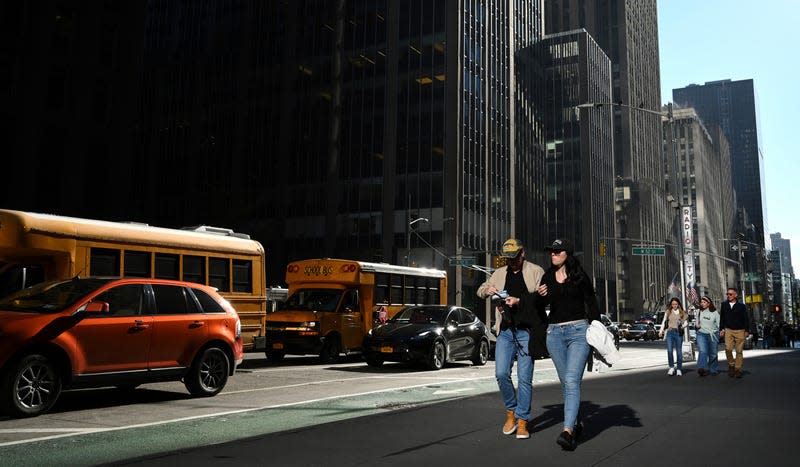It Shouldn't Be This Hot

November is supposed to bring colder weather to the Northern hemisphere, but this year the month began with unusually high temperatures.
Several cities broke heat records for November this weekend. Montreal, Canada saw its hottest day ever recorded in November. City residents flocked to parks and other green spaces as temperatures soared to 75 degrees Fahrenheit (24 degrees Celsius) on November 5. Temperature records were shattered all over New England, too. Hartford, Connecticut temperatures reached 78 degrees Fahrenheit (25 degrees Celsius) on Saturday, breaking an old record of 76 degrees Fahrenheit (24 degrees Celsius) that was set for that date in 1994, according to the National Weather Service. On November 6, Boston saw temperatures reach 76 degrees Fahrenheit (24 degrees Celsius), which broke a previous record of 73 degrees Fahrenheit (22.7 degrees Celsius) set in 2015.
Read more
Across the pond, Dobliče, Slovenia reached 79 degrees Fahrenheit (26.2 degrees Celsius) last Monday, The Guardian reported. This was the highest November temperature ever recorded in the country. Austria, France, Slovenia, and Switzerland all recorded their warmest Octobers on record, according to The Guardian. Much of the continent is now expected to experience a milder than usual November, Bloomberg reported last week.
This is all part of an alarming trend. The past eight years have been the hottest ever on record, according to the UN’s World Meteorological Organization. Its latest report makes it clear that the warming has been caused by rising greenhouse gas emissions.
“All too often, those least responsible for climate change suffer most—as we have seen with the terrible flooding in Pakistan and deadly, long-running drought in the Horn of Africa. But even well-prepared societies this year have been ravaged by extremes—as seen by the protracted heatwaves and drought in large parts of Europe and southern China,” Petteri Taalas, the World Meteorological Organization secretary-general, said in a press release. “Increasingly extreme weather makes it more important than ever to ensure that everyone on Earth has access to life-saving early warnings.”
The UN report comes at the start of COP27, the annual global climate conference being held this year in Egypt. The whole thing is high-key frustrating, as global polluters like Coca-Cola are allowed to be corporate sponsors while they peddle greenwashing.
UN Secretary General António Guterres spoke at COP27 this weekend and warned about inaction. “Greenhouse gas emissions keep growing. Global temperatures keep rising. And our planet is fast approaching tipping points that will make climate chaos irreversible,” he said. “We are on a highway to climate hell with our foot on the accelerator.”
Meanwhile, Greenland experienced its largest melting event for any September on record. Melting occurred across more than a third of the ice sheet, according to the U.S. National Snow and Ice Data Center’s (NSIDC). Huge ice melt events like this are usually expected around July, and melting is supposed to slow down around September, not spike. The melting was so bad, more than 30 billion tons of surface water from Greenland flowed into the ocean. The extreme meltdown came hot air from a North American heat wave made its way northeast.
We stand to lose a lot of glacial covering before the middle of this century. The world is less than half a century away from losing ice caps across the U.S., Europe, and Africa. About a third of glaciers located within UNESCO World Heritage sites are expected to melt away by 2050. That’s 10% of Earth’s total glacier-covered area.
Extremely high temperatures this summer strained emergency services across the Northern hemisphere. Spain recorded 1,047 deaths during record-breaking heat in mid-July. And by late July, Portugal reported about 1,000 heat-related deaths. Fires raged across the London area in July, and the city’s fire brigade had its busiest day since World War II.
An early September heat wave across the American West placed tens of millions of Americans under a heat warning. Californians were asked to reduce their power usage to avoid lengthy blackouts, as officials worried that the grid wouldn’t hold out.
More from Gizmodo
The Best Shortcuts On Mac: Snap Windows, Text to Speech, and More
How to Delete Your Twitter Account If Elon Musk Was Your Last Straw
Sign up for Gizmodo's Newsletter. For the latest news, Facebook, Twitter and Instagram.

